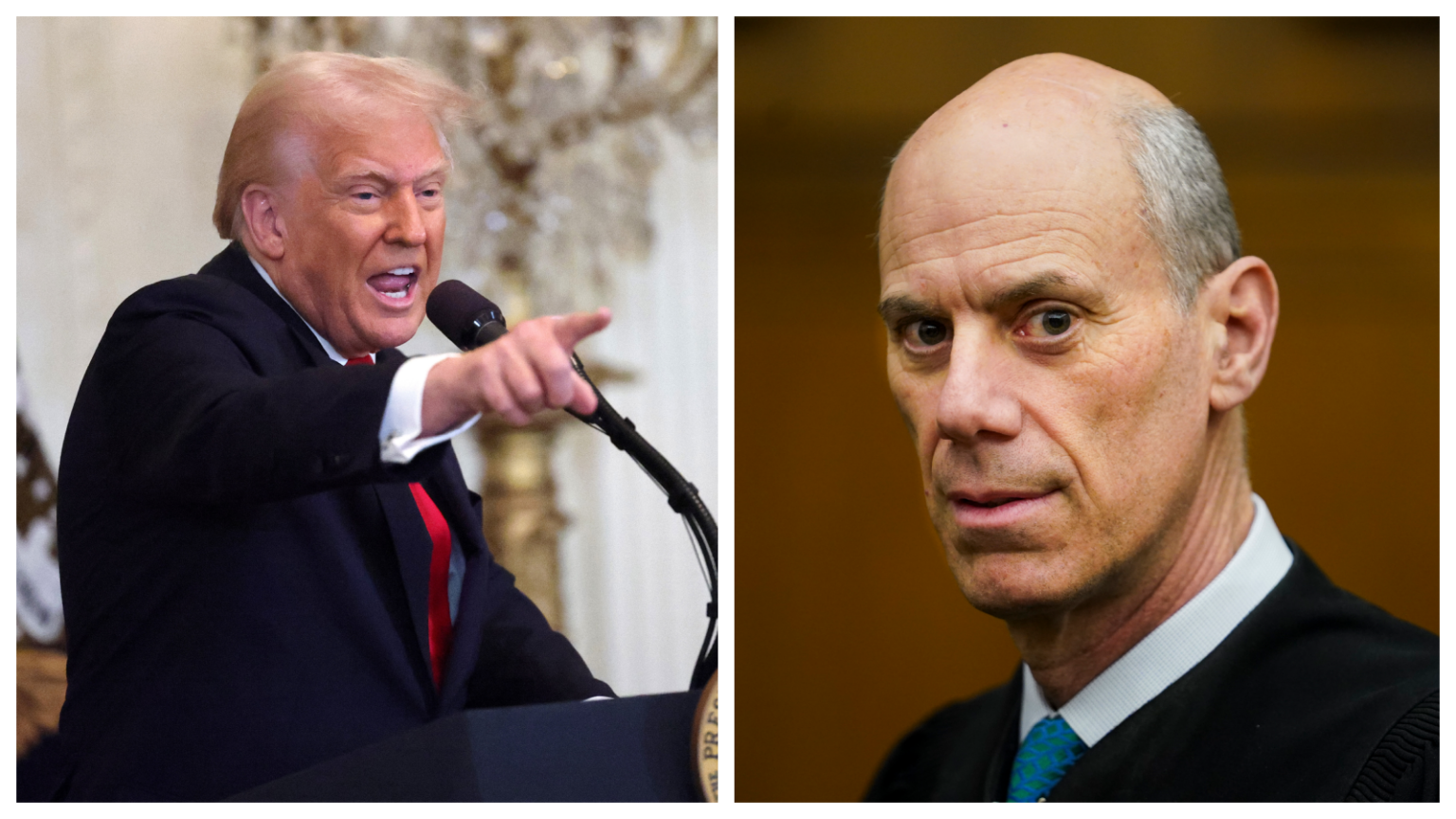President Donald Trump’s legal battles with the judiciary continue, as U.S. District Judge James Boasberg has extended his temporary restraining order that halts deportation flights under the Alien Enemies Act. Originally set to expire on March 29, Boasberg’s ruling now extends the order to April 12, or until further notice from the court, as reported by Newsweek.
The ruling is a significant legal setback for the Trump administration, which has invoked the Alien Enemies Act of 1798 to justify the rapid deportation of Venezuelan nationals suspected of gang affiliations. The administration argues that Boasberg’s interference obstructs Trump’s constitutional authority and jeopardizes national security.
“The continued interference by an unelected activist judge in the foreign policy of the United States is a clear obstruction of President Trump’s constitutional authority and threatens the safety and security of all Americans,” a Department of Justice spokesperson told Newsweek.
Trump Slams Judge Boasberg Over Multiple Cases
Trump’s frustration with Judge Boasberg escalated further after the judge was assigned a fourth case involving the former president. In response, Trump took to Truth Social, calling Boasberg “highly conflicted” and accusing him of suffering from Trump Derangement Syndrome.
“How disgraceful is it that ‘Judge’ James Boasberg has just been given a fourth ‘Trump Case,’ something which is, statistically, IMPOSSIBLE. There is no way for a Republican, especially a TRUMP REPUBLICAN, to win before him,” Trump posted.
Trump further claimed that Boasberg, the Chief Judge of the D.C. District Court, was unfairly assigning himself high-profile cases related to the former president, questioning whether judicial assignments were being conducted randomly.
“Is there still such a thing as the ‘wheel,’ where the Judges are chosen fairly, and at random?” Trump asked.
Supreme Court Urged to Intervene in Deportation Dispute
In response to Boasberg’s ruling, the Trump administration has petitioned the U.S. Supreme Court to intervene in what it describes as a critical national security matter. The legal battle centers on Trump’s use of the Alien Enemies Act to swiftly deport suspected members of Tren de Aragua, a Venezuelan gang the administration has labeled a terrorist organization.
The petition urges the Supreme Court to overturn Boasberg’s ruling and affirm Trump’s executive authority to conduct deportations under the law. The case is now regarded as one of the most consequential legal battles currently on the Supreme Court’s docket, according to CNN.
“This case presents fundamental questions about who decides how to conduct sensitive national-security-related operations in this country – the President, through Article II, or the judiciary,” Acting Solicitor General Sarah Harris wrote in the filing.
“The Constitution supplies a clear answer: the President. The republic cannot afford a different choice.”
Trump Administration Fights Judicial Roadblocks
This legal battle is just one of several ongoing disputes between Trump and the federal judiciary. The administration has frequently clashed with lower courts, arguing that judges have consistently obstructed Trump’s executive actions, particularly when it comes to immigration and national security policies.
Trump’s legal team contends that lower court rulings have systematically delayed his agenda, despite the fact that his policies align with federal law and historical precedent. The temporary restraining orders issued against him, they argue, have created unnecessary delays that weaken executive power.
Deportation Flights Already in Motion
Despite the court ruling, the Trump administration has already deported more than 200 Venezuelan nationals, transporting them via three flights to El Salvador, where they are currently held in a maximum-security prison. The administration maintains that some of these individuals were deported under legal provisions other than the Alien Enemies Act, reinforcing its position that the deportations were lawful.
According to the Trump administration, many of these deported individuals were affiliated with Tren de Aragua, a dangerous transnational criminal organization known for drug trafficking, extortion, and violent crimes. Officials argue that their swift removal was essential for public safety.
Chief Justice Roberts Subtly Rebukes Trump
The legal drama escalated further after Chief Justice John Roberts appeared to issue a veiled rebuke of Trump. The comment came after the former president suggested that Judge Boasberg could be removed via impeachment—a statement that drew backlash from the legal community.
Roberts’ remarks, while indirect, were widely interpreted as a defense of judicial independence. His stance underscores the broader tension between Trump and the judiciary, as the former president continues to battle legal roadblocks in implementing his immigration and national security policies.
A Defining Legal Battle for Trump’s Presidency
With the April 12 deadline approaching, the Supreme Court’s decision on this case could have far-reaching implications for executive power and immigration enforcement. If the court sides with Trump, it would reinforce the president’s authority over national security and deportations. However, if it rules against him, it could set a precedent that limits future executive actions in similar cases.
As Trump continues his legal fight against the judiciary, this case represents one of the most pivotal battles of his presidency. The outcome will not only shape immigration policy but also define the balance of power between the executive and judicial branches moving forward.
